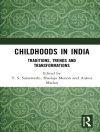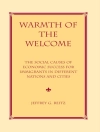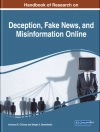Petersen and Lupton focus critically on the new public health, assessing its implications for the concepts of self, embodiment and citizenship. They argue that the new public health is used as a source of moral regulation and for distinguishing between self and other. They also explore the implications of modernist belief in the power of science and the ability of experts to solve problems through rational administrative means that underpin the strategies and rhetoric of the new public health.
表中的内容
Introduction
The New Public Health
A New Morality?
Epidemiology
Governing by Numbers
The `Healthy′ Citizen
Risk Discourse and `the Environment′
The `Healthy′ City
The Duty to Participate
Conclusion
关于作者
Deborah Lupton is SHARP professor in the Faculty of Arts & Social Sciences, UNSW Sydney, working in the Center for Social Research in Health and the Social Policy Research Center and leading the Vitalities Lab. She is the author/co-author of 17 books, the latest of which are Digital Sociology (Routledge, 2015), The Quantified Self (Polity, 2016), Digital Health (Routledge, 2017), Fat, 2nd edition (Routledge, 2018), and Data Selves (Polity, 2019). She is a fellow of the Academy of the Social Sciences in Australia and holds an honorary doctor of social science degree awarded by the University of Copenhagen.












